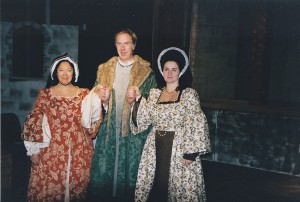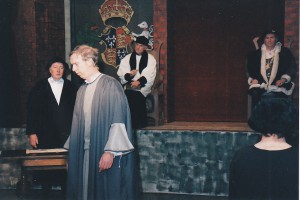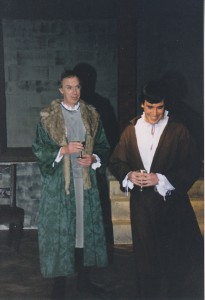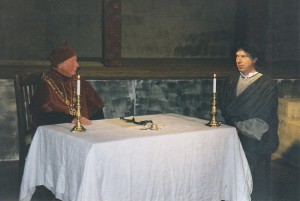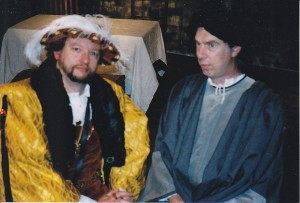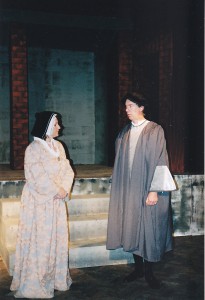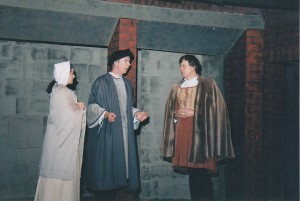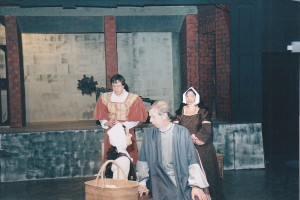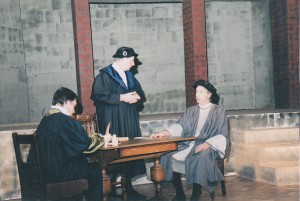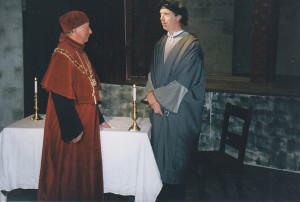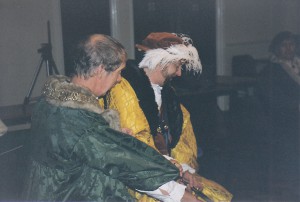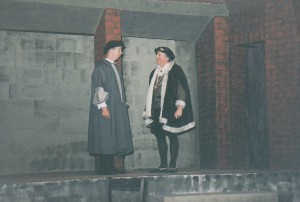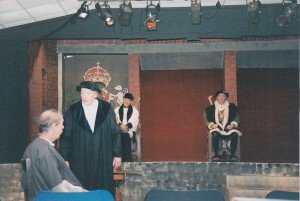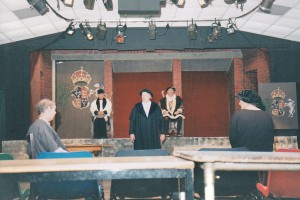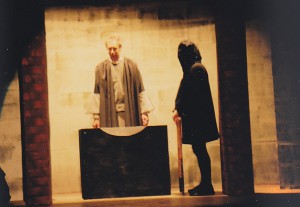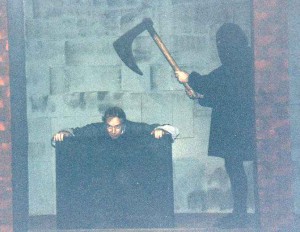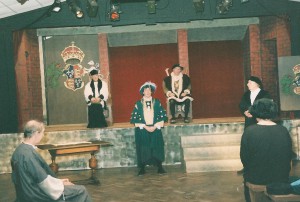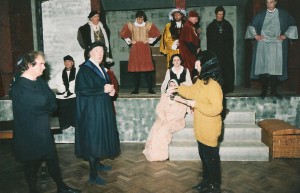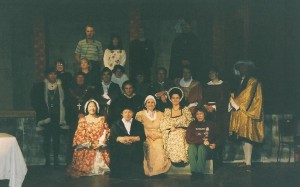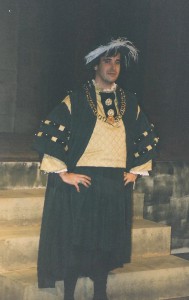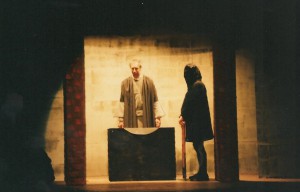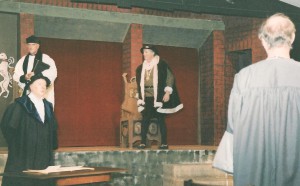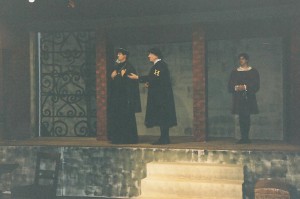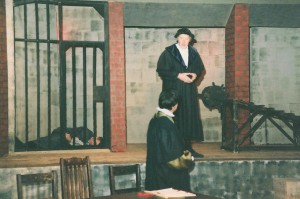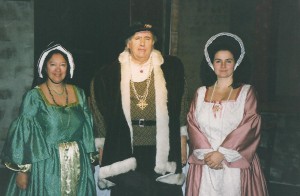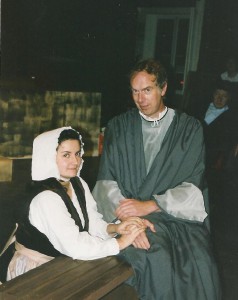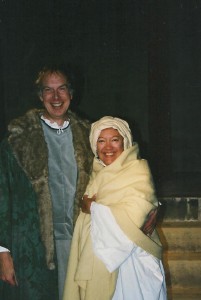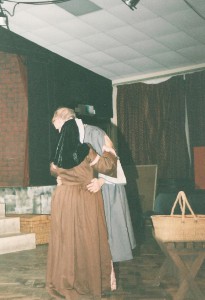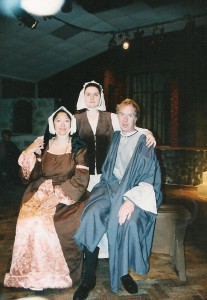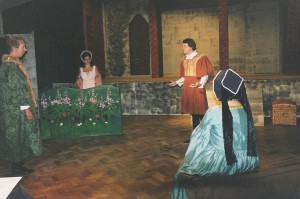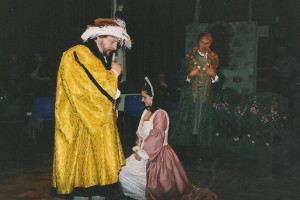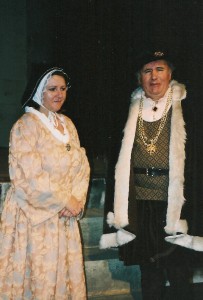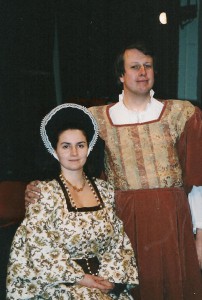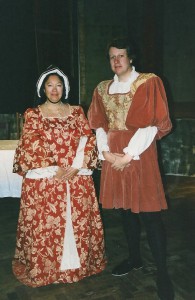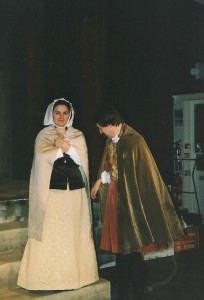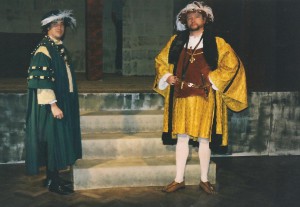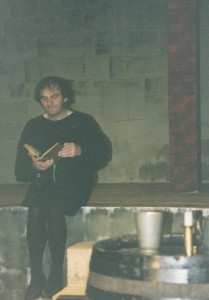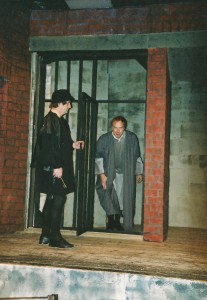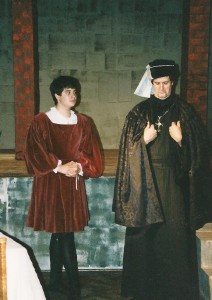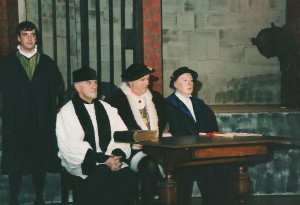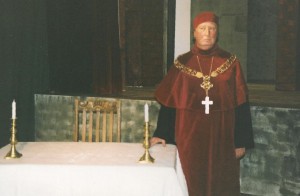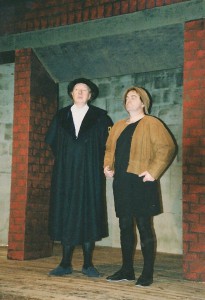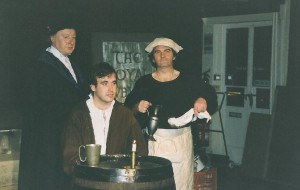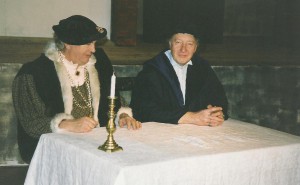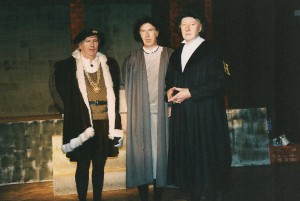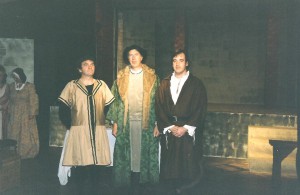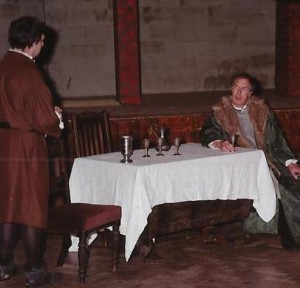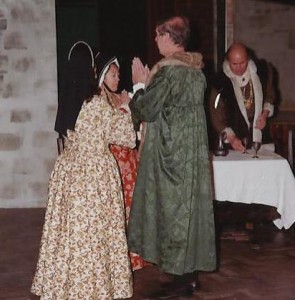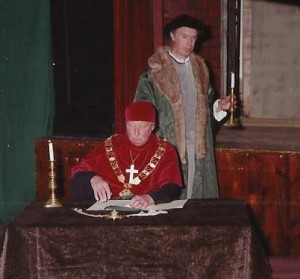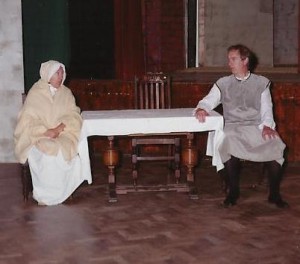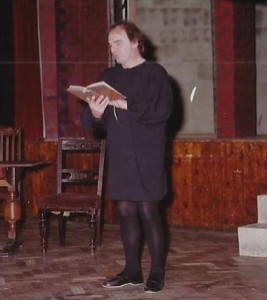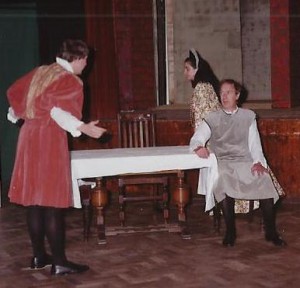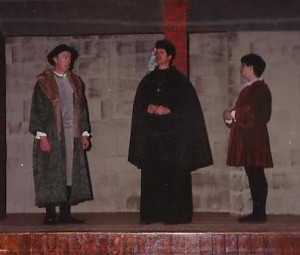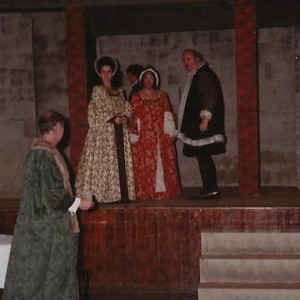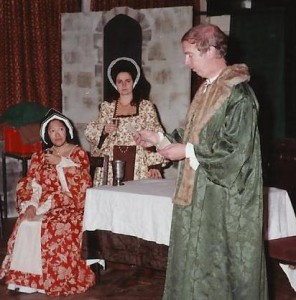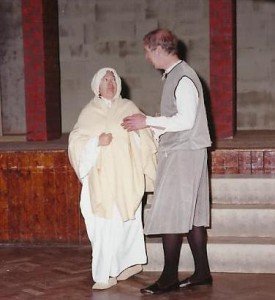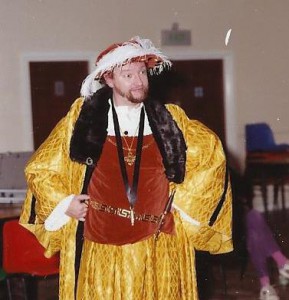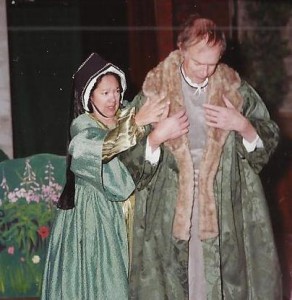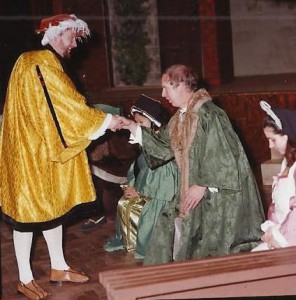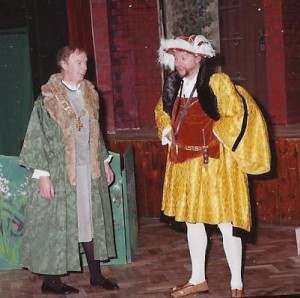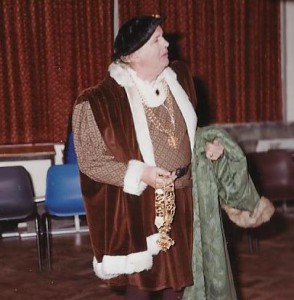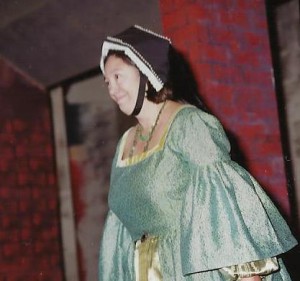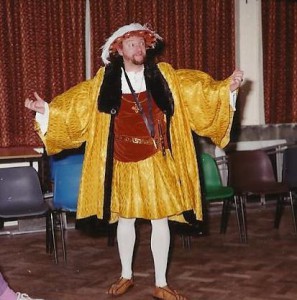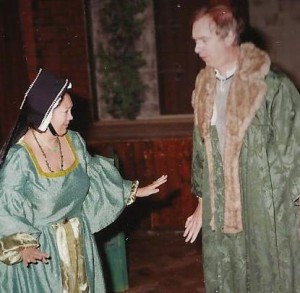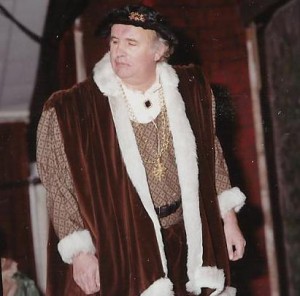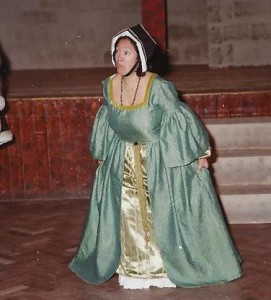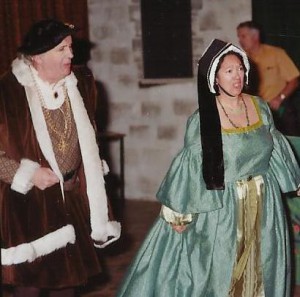by Robert Bolt
19th – 21st November 1998
This enduring modern classic dramatises the conflict between King Henry VIII and Sir Thomas More. It depicts the confrontation between church and state, theology and politics, absolute power and individual freedom. Throughout the play Sir Thomas More’s eloquence and endurance, his purity, saintliness and tenacity in the face of ever-growing threats to his beliefs and family, earn him status as one of modern drama’s greatest tragic heroes.
The Cast
The Common Man: Nick Roberts
Sir Thomas More: Paul Shave
Master Richard Rich: Scott Hulme
The Duke of Norfolk, Earl Marshal of England: Robertson Bell
Lady Alice More, Sir Thomas’ wife: Mary Warrington
Lady Margaret More, Sir Thomas’ daughter: Tracey Brett
Cardinal Wolsey: Brian Bailey
Thomas Cromwell: Mike Long
Signor Chapuys, The Spanish Ambassador: David McKenzie
Chapuys’ Attendant: Robin Hawkins
William Roper : Mark Bailey
King Henry the Eighth: Dave Hawkins
A Woman: Caroline Cook
Thomas Cranmer, Archbishop of Canterbury : Ian Hickling
Produced by Enid Farr
Newbury Weekly News review
Confident Players
It takes a lot of confidence to tackle the “bold and beautiful verbal architecture”, as Robert Bolt describes it, of his play A Man for all Seasons. And the Compton Players displayed great confidence in this production. This is the story of Thomas More, uncompromising in his loyalties to his king, his family, and, ultimately, his God, who refused to give his approval to Henry’s marriage to Anne Boleyn, and paid for his refusal with his life.
Paul Shave was a thoughtful, studied More, devoted to his family and his principles, and occasionally showing his more human instincts and emotions, demanding his supper, and persuading his wife Alice of his need to remain silent.
He was surrounded by powerful men with their own agendas, the sly, vengeful Thomas Cromwell, played by Mike Long, the Duke of Norfolk, a warm and loyal friend played with great resonance by Robertson Bell, and a self-assured, authoritative Cardinal Wolsey, played by Brian Bailey. Scott Hulme was Richard Rich, devious and treacherous, and Mark Bailey was a sincere and ardent Roper.
All of these characters were clearly drawn, but the characterisations throughout were a little too subtle. The contrasts which are essential for really powerful drama came in the characters of the women. Mary Warrington gave a passionate portrayal of More’s wife, desperately pleading, desperate to understand the intransigence, and Tracey Brett as Meg, More’s daughter, showed her intelligence and wit, as in the delightful Latin exchange with the young King. Dave Hawkins brought a lot of energy, and sympathy, to this part. Leading us through the drama as the Common Man was Nick Roberts, splendid in all his guises.
Enid Farr’s production in the round was excellent, although at times people behind the front row couldn’t see too well, and the set was superb, with sections being pulled out on stage to represent, for example, a garden or a riverside. It could have been brilliant with a little more pace and energy from some of the actors, but it was impressive nonetheless.
LESLEY McEWEN


